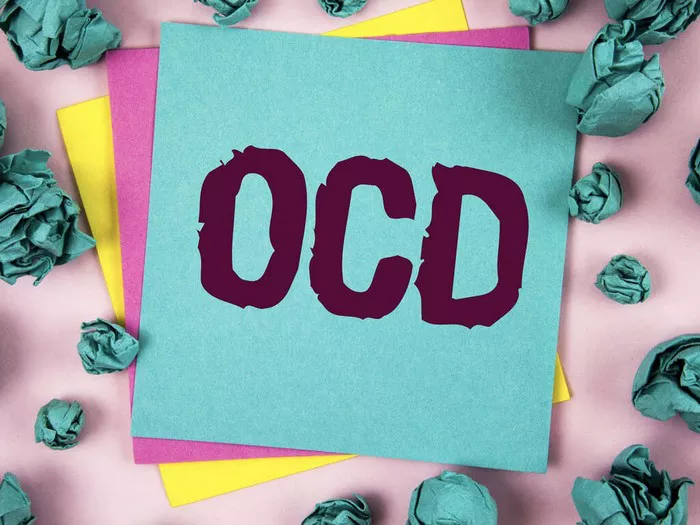Obsessive-Compulsive Disorder (OCD) is a mental health condition characterized by persistent, unwanted thoughts (obsessions) and repetitive behaviors (compulsions) that interfere with daily life. OCD can be distressing and debilitating, but effective treatments are available. Therapy, medication, and associated costs are crucial factors in managing the condition. This article provides an in-depth look at the best treatment options, common medications, and the financial considerations of treating OCD.
Understanding OCD Treatment
Treatment for OCD primarily involves a combination of psychotherapy, medication, and lifestyle modifications. The most effective approach varies from person to person, depending on the severity of symptoms and individual circumstances.
Cognitive-Behavioral Therapy (CBT)
Cognitive-Behavioral Therapy (CBT) is the most widely recommended psychological treatment for OCD. It focuses on identifying and challenging irrational thoughts and changing behavioral patterns. The most effective form of CBT for OCD is Exposure and Response Prevention (ERP).
Exposure and Response Prevention (ERP)
ERP is a specialized form of CBT that involves gradual exposure to anxiety-provoking situations while preventing compulsive behaviors. For example, a person with a fear of contamination might be encouraged to touch a doorknob without washing their hands immediately. Over time, this reduces anxiety and breaks the cycle of obsessions and compulsions.
ERP has been extensively researched and is considered the gold standard for OCD treatment, with many patients experiencing significant symptom reduction.
Other Forms of Therapy
While ERP is the most effective therapy, other therapeutic approaches can also help manage OCD:
Acceptance and Commitment Therapy (ACT) – Helps individuals accept their intrusive thoughts without reacting to them compulsively.
Mindfulness-Based Cognitive Therapy (MBCT) – Incorporates mindfulness techniques to help individuals observe their thoughts without judgment.
Psychodynamic Therapy – Focuses on unconscious conflicts and childhood experiences that may contribute to OCD. While less common, it can be helpful in certain cases.
Medication for OCD
Medication can be an essential part of OCD treatment, particularly for individuals with severe symptoms or those who do not respond to therapy alone.
Selective Serotonin Reuptake Inhibitors (SSRIs)
SSRIs are the first-line medications for OCD. They work by increasing serotonin levels in the brain, which helps regulate mood and reduce obsessive thoughts and compulsive behaviors.
Common SSRIs prescribed for OCD include:
- Fluoxetine (Prozac)
- Fluvoxamine (Luvox)
- Sertraline (Zoloft)
- Paroxetine (Paxil)
- Escitalopram (Lexapro)
These medications often require higher doses for OCD than for depression. It may take 8-12 weeks to see significant improvement, and side effects such as nausea, insomnia, and sexual dysfunction are possible.
Tricyclic Antidepressants (TCAs)
When SSRIs are ineffective, doctors may prescribe Clomipramine (Anafranil), a tricyclic antidepressant. Clomipramine has been used for decades to treat OCD but has more side effects, such as dizziness and drowsiness, compared to SSRIs.
Antipsychotic Medications
For individuals who do not respond well to SSRIs or TCAs, doctors sometimes prescribe antipsychotic medications like Risperidone (Risperdal) or Aripiprazole (Abilify) as an add-on treatment. These drugs help manage intrusive thoughts and compulsions but are generally used as a last resort due to potential side effects like weight gain and drowsiness.
Cost of OCD Treatment
The cost of OCD treatment varies significantly depending on factors such as the type of therapy, medication, insurance coverage, and geographical location.
Therapy Costs
Therapy, especially ERP, can be expensive. Costs depend on whether treatment is conducted in-person or online and whether a specialist is involved.
Individual therapy sessions: Typically range from $100 to $300 per session without insurance.
Group therapy sessions: More affordable, ranging from $30 to $100 per session.
Intensive outpatient programs (IOPs) or residential treatment: Can cost $5,000 to $30,000 for an intensive program lasting several weeks.
Medication Costs
The cost of medication depends on the drug type, dosage, and whether generic versions are available.
Generic SSRIs: Generally cost $10 to $50 per month with insurance, while brand-name versions can be significantly more expensive.
Clomipramine: Can cost $50 to $150 per month, depending on the dosage.
Antipsychotics: Prices vary widely, ranging from $50 to several hundred dollars per month.
Insurance Coverage
Many health insurance plans cover OCD treatment, including therapy and medications. However, coverage varies, and out-of-pocket costs can still be high, particularly for specialized treatment programs. Patients should check with their insurance provider to determine:
Whether CBT/ERP therapy is covered.
The co-payments or deductibles for therapy and medication.
Coverage for intensive treatment programs or hospital stays if necessary.
Alternative and Low-Cost Treatment Options
For individuals without insurance or with limited financial resources, alternative treatment options are available:
Online Therapy Platforms: Services like BetterHelp and Talkspace offer therapy at lower rates, typically ranging from $60 to $90 per session.
Community Mental Health Clinics: Offer sliding-scale fees based on income.
Support Groups: Organizations like the International OCD Foundation (IOCDF) provide free or low-cost support groups.
University Clinics: Many psychology training programs offer discounted therapy sessions with supervised trainees.
Conclusion
OCD is a challenging but treatable condition. Cognitive-Behavioral Therapy, particularly Exposure and Response Prevention, is the most effective therapeutic approach, while medications such as SSRIs and Clomipramine can help manage symptoms. However, treatment costs can be a barrier for many individuals. Understanding the financial aspects of therapy and medication, exploring insurance options, and considering lower-cost alternatives can help make OCD treatment more accessible.
If you or someone you know is struggling with OCD, seeking professional help is the first step toward managing the condition and improving quality of life.
You Might Be Interested In:

